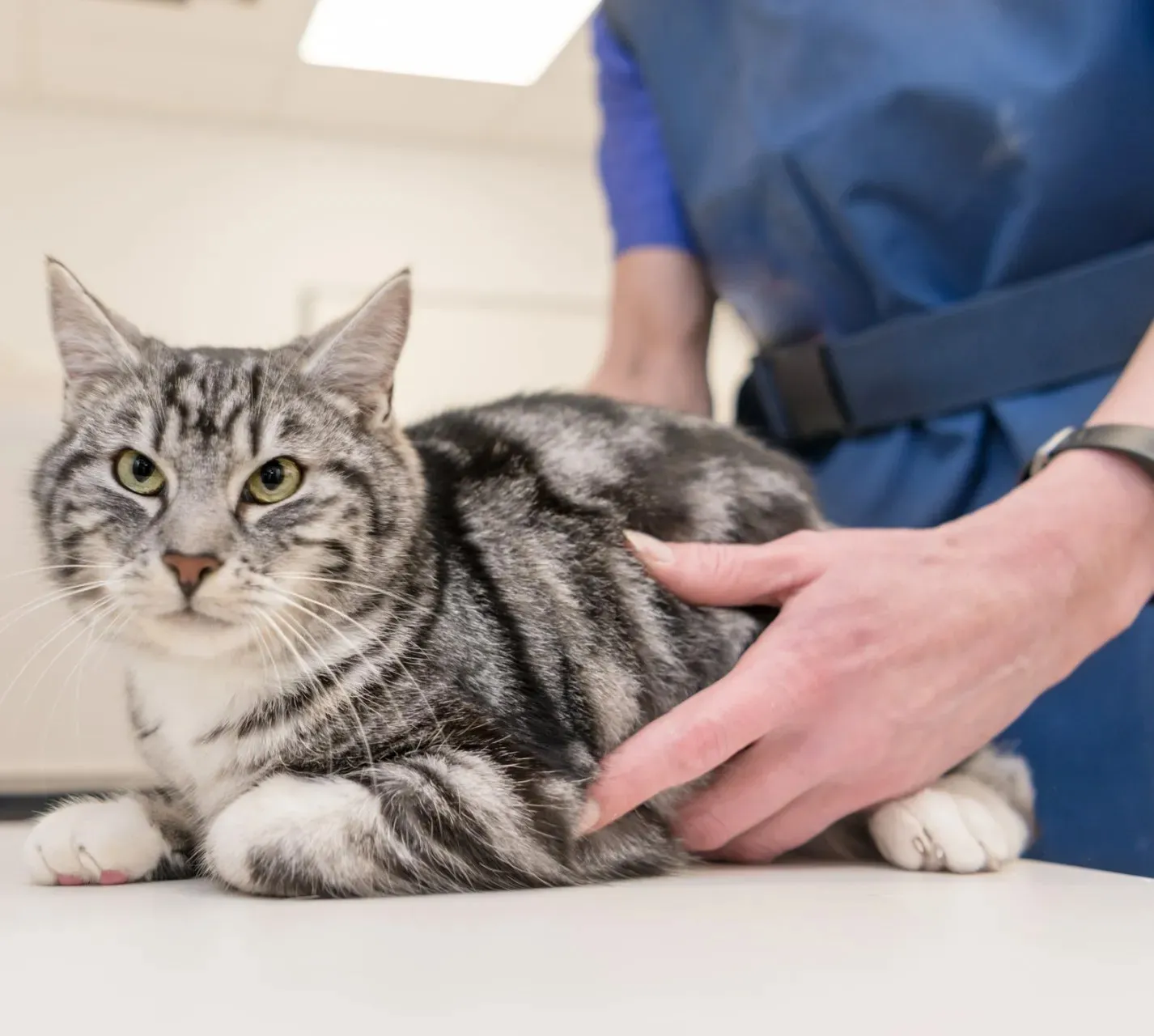Call the clinic for emergency service and information on how to reach the on-call veterinarian.
An emergency after hours fee may apply for work done after 5:00 pm or on weekends and holidays.
Contact Us
Contact Us

Emergency Animal Hospital in Central Missouri
Does your animal need emergency medical care? We know your animals are important to you, which is why we offer emergency services. Contact us for more information on how we can help you.
During business hours, please call us at the California Veterinary Clinic as soon as you recognize your animal needs emergency medical care and we will recommend the best course of action.
In case of an after-hours emergency, please call the California Veterinary Clinic at (573) 796-3168 and you will be provided with information on how to reach the on-call veterinarian.
Contact Us
When should I take my small animal to an emergency veterinarian?
- Injury from an accident or attack from another animal
- Loss of consciousness
- Difficulty breathing
- Disorientation
- Seizures
- Swallowing a foreign object
- Ingestion of a toxic substance
- Difficulty urinating
- Foaming at the mouth
- Prolonged diarrhea or vomiting that contains blood
- Swollen or painful abdomen
- Excessive vomiting and/or diarrhea
- Bleeding from any site that won’t stop
- Sudden weakness
- Collapse
- Seizure
- Toxin ingestion (for example, antifreeze, household cleaners, rat poison, prescription medications). If possible, bring in any packaging from the toxin.
- Any unproductive vomiting or retching, especially in medium- to large-breed dogs
- A belly that has suddenly gotten large and tense
- Inability or difficulty passing urine or defecating (especially male cats)
- Breathing difficulty
- Wounds that are deep or large
- Puppies, kittens and toy breed dogs that aren’t eating or drinking
- Significant trauma, including being hit by a car, jumping from a moving car, excessive bite wounds and punctures, any bite wound to the abdomen, projectile (e.g., bullet, arrow) injury, being stepped on or kicked by a large animal such as a horse
When would my cattle require emergency veterinary care?
- Calving difficulties, including prolapsed vagina or uterus, retained placenta, abnormal fetal position, mastitis, and neonatal care
- Pneumonia
- Respiratory obstructions
- Bloat
- Lacerations
- Fractures
- Extreme lameness
- Urinary obstruction
- Neurologic issues
- Rectal Prolapse
When would my horse require emergency veterinary care?
- Foaling difficulties, including retained placenta, mastitis, and neonatal care
- Non-weight-bearing lameness
- Significant trauma, including lacerations or puncture wounds and fractures
- Acute abdominal pain (colic, indicated by rolling, sweating, kicking at abdomen, etc.)
- Abdominal distention
- Respiratory difficulty and obstructions
- Difficulty urinating or defecating
- Ophthalmic conditions or injury to eye
- Weakness, shaking, or seizure
When would my small ruminant (sheep and goats) require emergency veterinary care?
- Lambing and kidding difficulties, pregnancy toxemia, prolapsed vagina or uterus, abnormal fetal position, hypocalcemia, mastitis, and neonatal care
- Urinary obstruction
- Respiratory Distress
- Polioencephalomalacia
- Grain overload